All images courtesy of Getty Images

Deep in the annals of history, buried far beneath the sands of time lies a treasure trove of fantastic music that is just waiting to be discovered. If you’re adventurous enough, willing to get your hands dirty, and inclined to do some digging, then we’ve got something for you.
Maybe you’re simply tired of your local Classic Rock stations playing “Stairway To Heaven,” “Iron Man,” and “Jump” on repeat. Maybe you’re a bit tired of your Rolling Stones, Beatles, and Aerosmith records. Whatever the reason, if you’re like us, while you love the “classics,” you also love to go deeper. You simply want more.
Well, that’s where Stage Freight: Uncovering Ten Cult Rock Albums Of The 1970s comes in. We’re blowing the lid off some forgotten gems, and running roughshod over boring FM Radio, and in doing so, we’re hitting that sweet spot…you know…that itch you’ve been trying to scratch, but can simply never reach.
Look, at the end of the day, “Walk This Way,” and “You Shook Me All Night Long” are great but have you heard “Moonrider,” or “Slick Witch?” Well, if not, you’re about to. Saddle up, and settle in, while Joe O’Brien, and Andrew Daly tag-team this list. Take the journey.
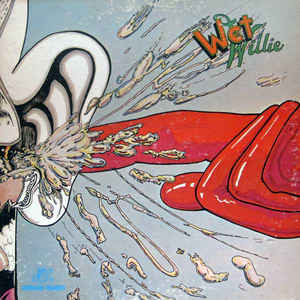 Wet Willie — Wet Willie (1971)
Wet Willie — Wet Willie (1971)
Joe’s Pick:
Some bands get buried in the murky waters of a decade of music and seem to never see the light of day again. Wet Willie is a consummate 70s case of such. They were remarkably active in the 70s, scoring a few top-40 hits, and issuing seven studio albums. Wet Willie stood out because of their juxtaposition of various styles made popular in the decade. They were soulful, often employing horns and a pair of killer background singers (The Willettes). They had a funky rhythm section but with hard-rocking classic guitar licks. On top of it, they still had a southern bluesy swagger, that gives credence to the clear influence The Allman Brothers had on them. Their discography is underappreciated as a whole, and a few albums could lend themselves to this countdown. I choose the group’s debut, Wet Willie, as I felt it is their most consistently jointed effort, while still showing what they were all about. Songs like “Spinning round” have them doing their best Foghat impression while songs like “Fool on You” have them doing a funked-out Allman Brothers. Other songs like “Dirty Leg” would be easy to re-imagine as an early KISS song sung by Peter Criss. If you love 70s Rock, this album has a song for you.
 Randy Holden — Population II (1970)
Randy Holden — Population II (1970)
Andrew’s Pick:
The influence of Randy Holden on Hard Rock and Heavy Metal cannot be overstated. While bands such as Black Sabbath, Blue Cheer, Deep Purple, Rainbow, and Cactus generally are given credit for launching Heavy Metal, in reality, Randy Holden helped shape the genre as much, if not more than any of those acts, with the exception perhaps being Sabbath. Anyway, interestingly enough, Randy Holden was a member of Blue Cheer, but he chose to quit the band during the recording of Blue Cheer’s third album, New! Improved!, due to conflicts with the band’s management, and his general disinterest in drug culture, which Blue Cheer was heavily associated with at the time. Shortly after leaving Blue Cheer, Holden signed an endorsement contract with Sun O))) Amps which would not only come to define his career but would aid in launching the entire genre of Doom Metal going forward. In this instance, Holden’s weapon of choice was a massive 200-watt amp, which allowed Holden to harness his nuclear sound showcased on his Proto-Doom freakout, Population II. Rounding out the band was drummer, Chris Lockheed, and in effect, the first “power duo” was born. Population II was quickly recorded in an old opera house, in 1969, and was intended to be released that same year, but ultimately, it was not to be as Holden’s equipment was stolen, rendering him bankrupt, and unable to release the album. Shortly thereafter, Holden quit the music business altogether and quietly moved to Hawaii. Around a year later, in 1970, a sleazy label called Hobbit Records got a hold of the bootlegged tapes and released Population II without Holden’s consent. By 1991, somehow, Randy Holden still had no idea that Population II had been released by Hobbit Records, nor was he aware of the cult following it had gained in the 22 years since its recording. Upon learning the news, Holden filed suit for the rights to his music, and royalties, and subsequently regained interest in making music and touring once again. Randy Holden continues to record, and play music sporadically, on his own terms. If you haven’t dug into this record yet, prepare to be blown away by both the birth of a genre, and also the thunderous tones of one of the most talented, and underrated guitarists of a forgotten generation.
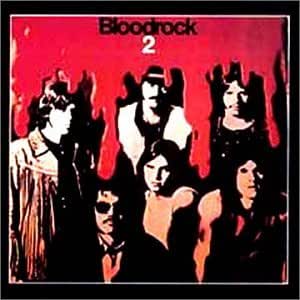 Bloodrock — Bloodrock 2 (1970)
Bloodrock — Bloodrock 2 (1970)
Joe’s Pick:
Hailing out of Fort Worth, Texas, Bloodrock is the ultimate cult band. They started off as a down and dirty Hard Rock, dare I say Proto-Metal band. However, over time, their music became progressively more complex, while still gripping to their aggressively heavy nature. Think of them as Texas’s answer to Uriah Heep. They came into the decade hot, launching two killer albums in its first year. On Bloodrock 2, they were firing on all cylinders. As a listener, you can hear the more progressive elements to come while still hearing that raw uncut Texas power of the first album. Bloodrock 2 and Bloodrock are of course best well known for the eight and a half minute single, “D.O.A.” Standing out from the rest of the album, “D.O.A.” is a deliciously morbid, and organ drenched tale of a plane crash. I defy anyone to listen to “D.O.A.” and not recognize how uniquely ahead of its time it was
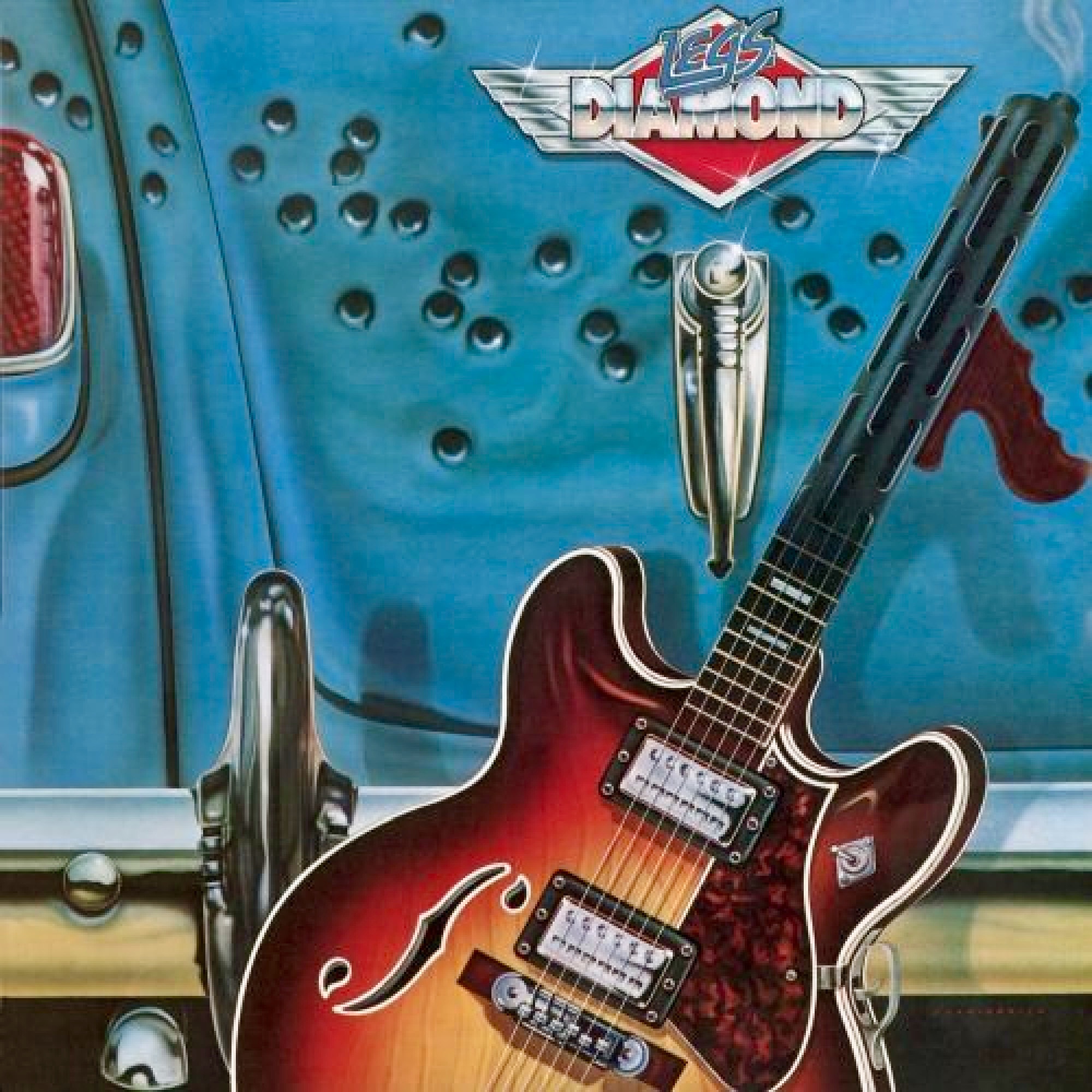 Legs Diamond — Legs Diamond (1977)
Legs Diamond — Legs Diamond (1977)
Andrew’s Pick:
Formed in 1975, Legs Diamond is an important link in the seemingly neverending chain which links Rock history together. If every chain has its weak links, Legs Diamond certainly isn’t one of them, with Michael “Diamond” Gargano (bass), Rick Sanford vocals), Roger Romeo (lead guitar), Jeff Poole (drums), and Michael Prince (rhythm guitar) forming one of the nastiest Proto-Metal groups on the 70s scene. While being extremely underrated, those in the know fully understand the massive impact that Legs Diamond had on the early 80s Metal scene which eventually gave way to Glam and Hair Metal. The group’s initial run from 1975 through 1980 was fruitful, and elicited three standout albums, the best of which is the band’s debut, Legs Diamond. From the opening chords of, “It’s Not The Music,” until the final reverberations of the albums closing track, the nearly nine-minute opus, “Can’t Find Love,” this much is clear, Heavy Metal music would not have been shaped quite the same without the existence of Legs Diamond. While the band initially formed in California, they gained a cult following in Texas, and are thought of as Texas’s very own “personal Led Zeppelin,”in a way. It was this cult following, and underground regard for their first three records which led to Romeo, Prince, and Poole to reform Legs Diamond, in 1984, with a few new members, which have rotated in and out since. The band had soldiered onward, and continued to tour and release new music. If you’ve not dug into Legs Diamond, treat yourself to the band’s first three records, and bask in the Proto-Metal mastery at its finest.
 Estus — Estus (1973)
Estus — Estus (1973)
Joe’s Pick:
Unlike my first two picks, who at least had some 70s staying power, Estus was short-lived. They had a one-off album on Columbia, in 1973. After that, they were never to be heard from again. The album has never even enjoyed an official physical re-release since its 1973 vinyl pressing. The intermingling of raw Hard Rock blended with the infectious arena catchiness make this album’s obscurity an absolute crime. It’s worth noting, in retrospect, any visibility the album has currently is related to its drummer, Mark Bell. The album was an interesting time in Mark’s career, post-Dust (another now legendary Proto-Metal band), and pre-Ramones AKA Marky Ramone.
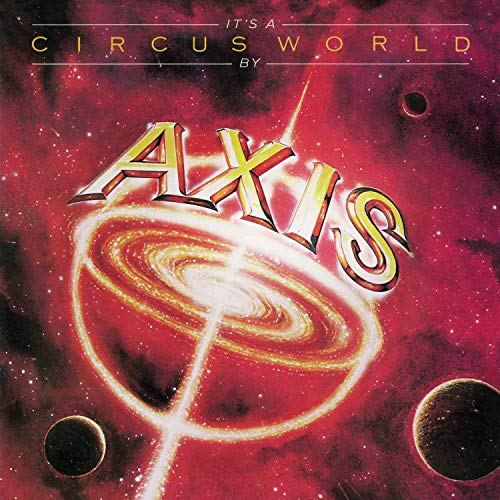 Axis — It’s A Circus World (1978)
Axis — It’s A Circus World (1978)
Andrew’s Pick:
While most of you will know the legendary Heavy Metal drummer, Vinny Appice, from his time in Black Sabbath, and subsequently Dio, before he was world-famous, Vinny launched the seldom talked about, little-known band, Axis. The younger of the two Appice brothers’ first gig was as Rick Derringer’s drummer at the age of 17. After a successful run with Derringer, Vinny decided to branch out on his own and took Derringer’s guitarist, and backup vocalist, Danny Johnson, with him. Soon after, the duo hooked up with bassist, Jay Davis, and Axis was born. As I mentioned earlier, Vinny is generally associated with Heavy Metal, but Axis’s 1978 debut record, It’s A Circus World, is a Funky, Hard Rock affair with some serious swing, and yes, plenty of Vinny Appice’s signature monster drumming to go around for miles upon miles. As far as power trios go, Axis does not disappoint, with intricate, powerful fills from Appice, paired with throbbing walls of guitars, and chunky bass licks, it’s a wonder that Axis didn’t continue on. Tracks such as “Armageddon,” “Brown Eyes,” and “Soldier Of Love,” are simply as good as it gets. Period. Before this record, there may have been some who felt that Vinny was merely, “Carmine’s younger brother,” but if Axis did anything, it showcased Vinny Appice to the world, and put Carmine on official notice that he and all of his contemporaries were to be challenged from that point on. The album flopped, and save for diehard Vinny Appice fans, to this day, you will be hard-pressed to find anyone who’s ever heard of it. Still, with an album this great, it’s hard to understand why the band didn’t get a second shot at redemption, and while both Danny Johnson and Jay Davis would go on to have fine careers as session musicians, it was Vinny would have the last laugh. After the release of It’s A Circus World, Vinny would go on to join Black Sabbath in the early 80s, forming one of the best lineups in the band’s history alongside Ronnie James Dio, and recording some of the band’s best work. After that, Vinny would go on to a long career with Dio, and more. Kings to you, Vinny.
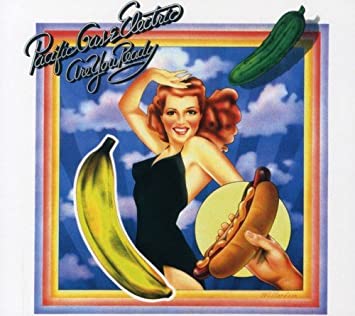 Pacific Gas & Electric — Are You Ready (1970)
Pacific Gas & Electric — Are You Ready (1970)
Joe’s Pick:
When PG&E formed in the late 1960s, they started to make a lot of noise on the strength of Glenn Schwartz’s robust guitar play, and Charlie Allen’s standout soulful tone. After two average albums, both commercially and musically, the boys finally hit their stride with Are You Ready? The album finds them at a perfect crossroads between the emerging Hard Rock of the time, and the deep bluesy Soul many would also come to associate with past decade al la Otis Redding. The LP is filled with marvelous chunks of Rock such as “Love, Love, Love, Love, Love” where thunderous, psychedelic guitars showed Hendrix admiration for Schwartz had to be a two-way street, and “Elvira,” which sounds like Wilson Pickett fronting a garage band on speed. However, they would best become known for the crown jewel single of the album, the title track, “Are You Ready.” It should be emphasized one of the standout points of the song is the excellent use of the singing group, The Blackberries, as background singers (also employed by acts such as Humble Pie and Pink Floyd). PG&E would continue throughout the decade with a rotating cast of characters that would unfortunately never again rise to this level seen at the start of the decade.
 Moxy — Moxy (1975)
Moxy — Moxy (1975)
Andrew’s Pick:
For those that aren’t aware of Moxy, this will be an education in legendary Rock that should have been the next big thing but simply wasn’t. Moxy was initially formed in Canada, and the group, which temporarily featured young virtuoso guitarist, Tommy Bolin, ventured to California, to independently record, Moxy, in 1974 and ’75. Through hard-fought grassroots promotion, Moxy became one of the most requested albums on FM Radio stations throughout the United States, which led to the band being picked up by Polydor Records, in 1976, garnering the record a wide release. Moxy itself was comprised of Buzz Shearman on vocals, Earl Johnson on guitar, Terry Juric on bass, and Bill Wade on drums. The young Tommy Bolin, who had starred with The James Gang previously, was something of a free agent at the time and was hanging around the studio in which Moxy was recording in. As fate would have it, Earl Johnson would get into a disagreement with the album’s producer, Mark Smith, who subsequently threw Johnson out of the studio. Being in the right place at the right time, Tommy Bolin was asked to record the lead guitars for the record, and the rest, as they say, is history. Through these seemingly random, yet fortuitous turns of events, one of the fiercest, and most underrated albums in Rock history was crafted. While the album gained a cult following, and the single, “Can’t You See I’m A Star,” was a minor hit, overall, the album has been forgotten to the sands of time. Moxy would soldier on until 1983, before quietly disbanding, only to regroup in 1999. These days, the band still tours and is working on some new music. As for Bolin, his time as an unofficial member of Moxy was short, having auditioned and earned a role in Deep Purple as Richie Blackmore’s replacement shortly after the recording and release of Moxy. After a show with Peter Frampton and Jeff Beck in 1976, Bolin was conversing with Jeff Beck backstage, and Beck said to Bolin, “Take care of yourself,” to which Bolin replied, “I’ve been taking care of myself my whole life. Don’t worry about me. I’m going to be around a long time.” Hours later, Tommy Bolin would overdose on a combination of heroin, cocaine, and alcohol, at the age of 25. Tommy Bolin’s life was short, but his talent was endless, and recordings such as Moxy showcase that in spades.
 White Witch — A Spiritual Greeting (1974)
White Witch — A Spiritual Greeting (1974)
Joe’s Pick:
One of my personal favorite cult Rock bands of all time is White Witch. White Witch was a short-lived, Floridian Rock band in the early 70s with a sound that was impossibly difficult to pin down. Oddly enough, both albums were on Capricorn Records, a label is known for its handling of Blues-based, mainstream, Southern Rock outfits such as The Allman Brothers, or Marshall Tucker Band. One can only wonder if they may have flourished further on a label like Buddha Records. The second and final of their two albums, A Spiritual Greeting, is where they really hit their stride. We guarantee this album has everything you didn’t know you were looking for. Imaginatively Progressive in concept, and lyrically Psychedelic in nature with over-arching Space-Rock noted backdrops. While the aforementioned still rings true, it is also a catchy sing-along with infectious-laden riffs. At some points, one may feel they have more in common with the Glam Metal acts of the 80s than the experimental drug-induced psychedelics of the 60s. In short, infuse yourself with the white magic of this long-forgotten classic.
 Starz — Starz (1976)
Starz — Starz (1976)
Andrew’s Pick:
Starz was a band that seemed destined for true greatness. Not just success, but full-blown, unmitigated, balls to the wall, burn the house down greatness. Look at it, Starz had it all — a major label deal with Capitol Records, and we’re managed by Bill Aucoin AKA the man who helped build KISS. Retrospectively, Starz is lauded and loved for their musicality, influence, and general badassery by the likes of Bon Jovi, Poison, Black ‘N Blue, and more. In essence, Starz, in a very big way took what bands like KISS, The Raspberries, T-Rex, Angel, and Sweet had done, and amplified it, pushing the genre of Glam and Heavy Metal forward in ways previously unknown. When it came to Starz, they had the dynamic frontman/lead guitarist duo in the soaringly charismatic Michael Smith and the frenetically volcanic Richie Ranno, and they had the tunes to boot. Starz’s 1976 debut record, Starz, is jam-packed with tracks custom-built to rock areas from coast to coast. Seriously, go back and listen to “Detroit Girls,” “Live Wire,” “Boys In Action,” “Night Crawler,” and “Pull The Plug” and honestly try and tell yourself that Starz doesn’t set your speakers on fire. So, why didn’t Starz make it big? While many older A-listers know Starz well, the younger generation has all but forgotten them, to the point that one of the most talented, and effervescent bands of the 1970s are hardly even a footnote. What happened? In essence, the band’s label, Capitol Records had absolutely no vision for a Hard Rock act like Starz, and effectively tanked the band…they tanked a band that should have by rights taken over the world. While Starz would blow the bands they were supporting off the stage each night, effectively wowing audiences, at the same time, they could barely get their record in stores. In short, Starz was shafted by desk jockeys in suits, who simply didn’t get it, and ultimately, the band’s management and record company grabbed defeat from the jaws of victory. The story of Starz doesn’t end there though. As is the case with many of these records, through word of mouth on the street, Starz did manage to garner a cult following, and in the late 80s, Ranno and company came together again, and have more or less been together ever since as a touring act, trying to expose ears and minds both young, and old through good old fashioned Hard Rock AKA the music which fueled a generation to come. If you have the chance to go see Starz — take it. They’re one of the special bands of a generation, and we’re lucky to still have them around.
The 70s was truly an epic and defining decade of legendary Rock music. However, after the constant commercial exposure to the same-old, same-old, it’s easy to feel in 2021 that the decade has nothing left to offer.
For every Dark Side of the Moon. or Led Zeppelin IV, there is an It’s A Circus World, or Are you Ready? For every great band that “made it,” there are at least three that didn’t and are just as worth checking out. Just remember that when it comes to music, there is always more there than meets the eye, or in this case…ear.

Interested in digging deep into the annals of Rock? Check out some of the albums we discussed below:
Dig this article? Check out the full archives of Mix-Tapes & Memories, by Joe O’Brien, here: https://vinylwritermusic.wordpress.com/mix-tapes-memories-archives/, and the full archives of Idle Chatter, by Andrew Daly, here: https://vinylwritermusic.wordpress.com/idle-chatter-archives/





Leave a Reply